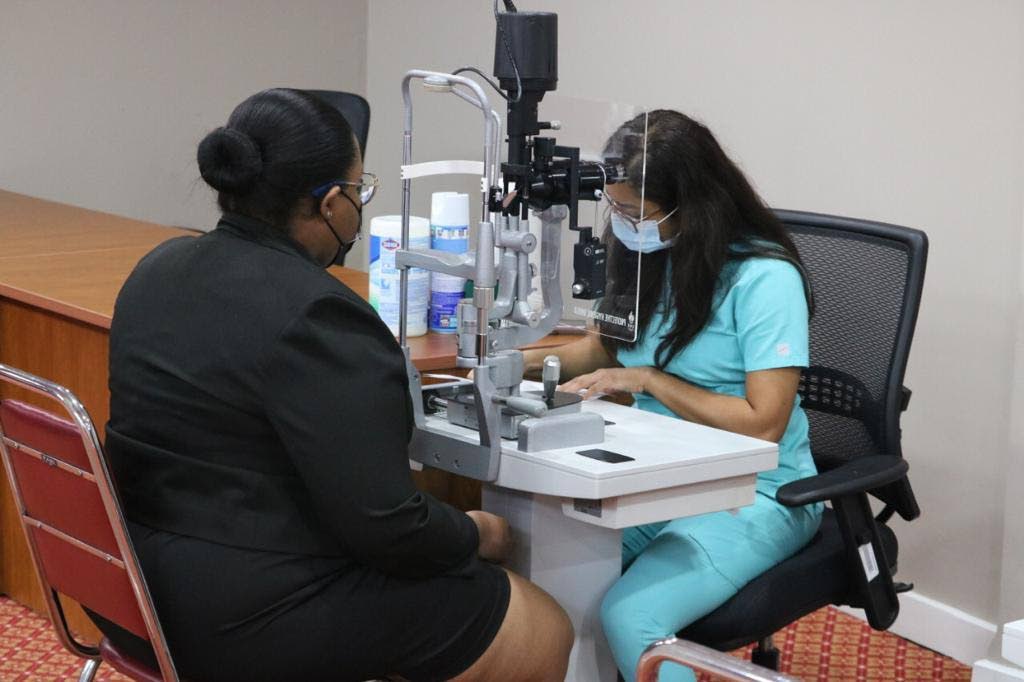Glaucoma screening for Parliament staff

As part of its health month calendar, staff at the Office of the Parliament were screened for glaucoma and other eye diseases such as cataract on April 8.
The screening eye examinations were conducted by doctors from the Eye Unit of the North West Regional Health Authority, with support from Eye See You Ophthalmic and Medical Supplies Ltd, a local distributor of medical and surgical eye-care products. The event took place at the Cabildo Building on Sackville Street, a media release said.

Fifty-four staff members received eye examinations which included visual acuity testing, tonometry (measurement of intraocular/eye pressure), ultrasound pachymetry (measurement of central corneal thickness), clinical slit lamp examination and photography of the optic disc and macula, the release said.
The release stressed the importance of having regular eye examinations to determine if there is a problem that may require monitoring or treating to prevent visual impairment or blindness. It said many people are unaware of the presence of eye diseases until vision is affected, at which point vision loss may be irreversible.

Glaucoma remains the leading cause of blindness in Trinidad and Tobago. However, with early detection through screening and appropriate treatment with eye drops, laser or drainage surgery, blindness is completely preventable, the release said.
Comprehensive eye examinations are recommended every two to four years for people under age 40, even in the absence of visual symptoms or known risk factors for glaucoma, such as family history, short-sightedness and previous eye injury or inflammation. For those aged 40-54, eye examinations should be considered every one to three years and for those aged 55 or older, every one to two years, the release said.
If you have been diagnosed with glaucoma, follow-up will depend on the severity of the disease, the eye pressure levels and other risk factors. The more severe the disease, the more frequent the follow-up.


Comments
"Glaucoma screening for Parliament staff"